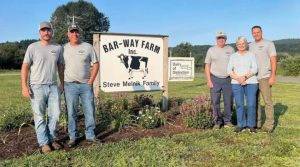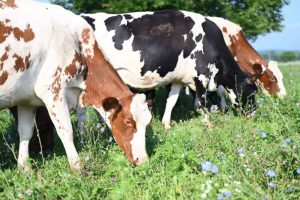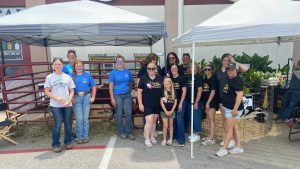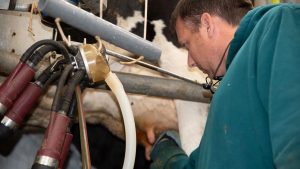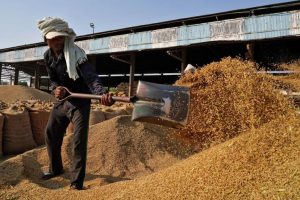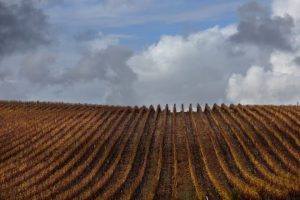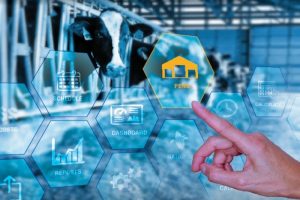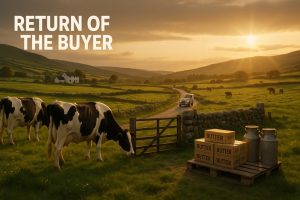
At Jordan Dairy Farm in Rutland, the cows are doing two things – producing milk and poop, lots of poop. Cow manure to be specific.
That may seem like a stinky problem. But it’s how the farm is being powered.
“I think one of our largest bills years ago that came to us was energy,” Randy Jordan said.
Jordan is a fifth-generation farmer and the co-owner of the farm. He’s noticed an increase in production costs over the years.
“Milk prices are still the same today as they were 50 years ago. But that’s the only thing that is the same price in the dairy world,” Jordan said.
In an effort to save money, Jordan looked into renewable energy.
“Solar as a whole is a great concept, but on a day like today, we don’t have a lot of sun, right? But you know what? We got a lot manure today,” Jordan said.
So when the 2014 food waste ban went into effect in Massachusetts, his farm was on the forefront to recycle food waste into clean energy.
“We were first in the state to be licensed to bring food waste into a facility like this,” Jordan said.
Among the equipment at the farm is an anaerobic digestor, one of the first in the state. It takes in 75 tons of food waste a day, along with 25 tons of manure. Together they can power 1,600 homes a day.
“So we take the gas that’s produced from the food waste and the manure, from all the cows that are here on the farm. Collect that gas, we dry it, and we burn it in a generator, to make electricity,” John Hanselman, founder and chief strategy officer of Vangaurd Renewables said.
That electricity powers the farm, but is also sent back into the grid and now powering local companies and schools that are part of the Farm Powered Strategic Alliance.
That is a network of five digesters across the state. It includes the Jordan Dairy Farms in Rutland and Spencer, as well as Bar-Way Farm in Deerfield, Crescent Farm in Haverhill, and Barstow’s Longview Farm in Hadley.
The network provides major companies a place to send their food waste in return for low-cost renewable energy.
The companies taking advantage of the energy include Starbucks, Dairy Farmers of America, Cabot Creamery, Chobani, Polar Beverages, Smithfield Foods, Stonyfield Organic, Unilever, Food Tank, Hillebrand, Kikkoman, and Schreiber Foods.
“So Polar Beverages sends us food waste, we turn it into renewable electricity and we send them back the electricity here. Turns out to be super simple, but actually massively impactful on our future,” Hanselman said.
Another benefit to the farm is the byproduct, an odorless organic liquid fertilizer that gets put back into the field. It is a full circle in sustainable farming.
“I think that our greatest hope is that people see how effective this is, how efficient this is and how impactful this is. Not just to our community, but to our family farmers,” Hanselman said.
And all it takes is one step.
“Just educating the community, and educating food manufactures and schools, that they can do this doesn’t require them to do anything different than what they are doing today, but put things into a different bucket,” Hanselman said.




